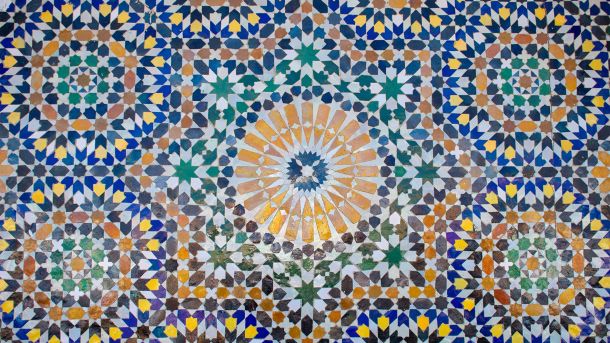News Archive
Jun 12, 2007
Questions On Refutations, Individuals and Connecting to the Scholars
The Questions to Shaykh Zayd al-Madkhalī
Q1: The first question is in regards to the disgusting error of Afrāz Baksh in which he stated, “Let’s look at Shaykh Aḥmad Ibn Ḥanbal… We revere him and we defend him; he is the Imām of Ahl al-Sunnah but how many times you can prove him, I am not to prove him, the ʿUlamāʾ can prove him, that he (Imām Aḥmad) has went away from Ahl al-Sunnah in aspects of ʿAqīdah.” [Note: this is a direct audible quote from Baksh himself, the grammatical errors belong to him.]
Q2: We have individuals amongst us who are greater than us in age and (general) knowledge…
Jun 12, 2007
27 Questions Regarding ʿAqīdah and al-Daʿwah al-Salafiyyah
“What is your advice to a person who wishes to seek knowledge and hold on to it?” The Shaykh replied: ‘It is upon you to maintain contact with the people of knowledge (ʿUlamāʾ) so that you can benefit from them…’ An important answer from a true Alim (scholar) which needs to be comprehended by the Muslims since many have taken the laymen, one who memorized a book, one who spent a day or month with an alim, read books of Tafsīr and Ḥadīth in Kuffar Universities and so on to be the beacons of knowledge in their lives. This answer is also a be…
Jun 12, 2007
False Desires: Their Evil Effect upon Unity
Speaking about the affairs of religion must only be done purely for Allāh’s sake. One’s intention must exemplify this in calling to Allāh. The allowance of desires to disturb this pure intention only causes ruin to the hearts of people.
Allāh explained that their splitting only occurred after the knowledge had come to them, and which showed them what they were commanded to do and to avoid. For Allāh does not leave people to stray, except after giving them guidance, until He explains to them what they were commanded to do.
The Roots Of Corruption:
Imām Ibn al-Qayyim (d.751H) – raḥimahullāh -…
Jun 12, 2007
From the Manhaj
And what is required is to call the Muslims to stand steadfast upon the Religion of Allāh, and to uphold His Sharīʿah and to co-operate in doing good, and to fear Allāh. By this, their ranks will unite and their word will be one, and they will be a single body, a single building and a single army in opposition to their enemies.
Proceeding Upon Knowledge
Imām al-Bukhārī (d.256H) – raḥimahullāh- said:
‘‘Chapter: Knowledge comes before speech and actions, as Allāh – the Most High – said:
‘‘So have knowledge that none has the right to be worshipped except Allāh, and seek forgiveness for yo…
Jun 12, 2007
The Ruling Concerning Multiple Groups and Parties
I say: There is not either in the Book or the Sunnah that which allows multiple groups and parties.
Al-ʿAllāmah Muḥammad ibn Ṣāliḥ al-ʿUthaymīn
The Fatāwá of Al-ʿAllāmah ʿAbd al-ʿAzīz ibn ʿAbdullāh ibn Bāz
[Q]: What is the obligation upon the Muslim scholars with regards to the large number of jam’iyyaat (societies) and jamāʿāt (parties) in the Islamic lands and elsewhere, and with regards to the differences that exist between them, to the point that each group declares others to be misguided. Do you not see that it is befitting to enter into explaining the like of this m…
Jun 11, 2007
Revival of the Muslim Ummah Is by al-Tasfiyah wa-al-Tarbiyah (Purification & Cultivation)
Therefore, the key to a return of the glory of Islām is:
Implementation of beneficial knowledge and establishing righteous and correct actions, and this is a very great affair with the Muslims cannot reach, except through the methodology (manhaj) of taṣfiyah (purification and correction) and tarbiyah (education and cultivation).
Purifying the Islamic ʿaqīdah from that which is alien to it, such as shirk, taʿtīl, taʿwīl, refusing authentic aḥādīth, because they are connected to matters of ʿaqīdah, and their like.
Imām al-AlbānīThese being two very great obligations. By the first of these (i…
Jun 11, 2007
Questions and Answers Concerning the Muslim Rulers
Splitting up (tafarruq) is not from the Religion, because the Religion commands us with unity, and to be one jamāʿah (community), and one Ummah upon the ʿaqīdah of tawḥīd, and upon following the Messenger of Allāh (ṣallallāhu ʿalayhi wa-sallam).
Al-ʿAllāmah ʿAbd al-ʿAzīz ibn ʿAbdullāh ibn BāzAn important set of questions and answers surrounding: the importance of ʿaqīdah, the harm of multiple Islamic groups (and movements), and the incumbency of following the manhaj of the salaf.
Jun 11, 2007
Questions and Answers Concerning Muslim Unity
Splitting up (tafarruq) is not from the Religion, because the Religion commands us with unity, and to be one jamāʿah (community), and one Ummah upon the ʿaqīdah of tawḥīd, and upon following the Messenger of Allāh ﷺ.
Al-ʿAllāmah Ṣāliḥ ibn Fawzān al-Fawzān
Jun 11, 2007
Questions and Answers Concerning al-Daʿwah al-Salafiyyah
Firstly, al-Daʿwah al-Salafīyyah is the pure Religion which calls to Tawḥīd and sincerity of worship. It is the daʿwah or the call to belief in Allāh, His Angels, His Books, His Messengers, the Day of Judgement, and belief in Qadar (pre-Decree). Therefore, al-Daʿwah al-Salafīyyah is the daʿwah of all of the Prophets, from Nūh who was the first Prophet, all the way to Muḥammad ﷺ who was the last and final Prophet and Messenger to be sent to mankind.
Shaykh ʿUbayd ibn ʿAbdullāh al-Jābirī
Al-daʿwah al-Salafīyyah is the daʿwah of the people to act in accordance with that which the Messenger of A…








